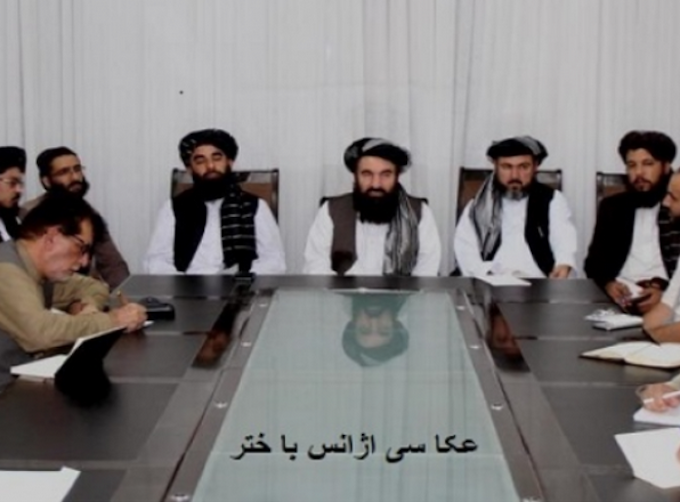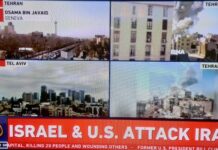
Asia Pacific Report newsdesk
Reporters Without Borders (RSF) says it is very disturbed by the “11 journalism rules” that the Taliban announced at a meeting with news media on September 19.
The rules that Afghan journalists will now have to implement are vaguely worded, dangerous and liable to be used to persecute them, the Paris-based global media freedom watchdog said.
Working as a journalist will now mean complying strictly with the 11 rules unveiled by Qari Mohammad Yousuf Ahmadi, the interim director of the Government Media and Information Centre (GMIC).
At first blush, some of them might seem reasonable, as they include an obligation to respect “the truth” and not “distort the content of the information”, said RSF.
But in reality they were “extremely dangerous” because they opened the way to censorship and persecution.
“Decreed without any consultation with journalists, these new rules are spine-chilling because of the coercive use that can be made of them, and they bode ill for the future of journalistic independence and pluralism in Afghanistan,” RSF secretary-general Christophe Deloire said.
“They establish a regulatory framework based on principles and methods that contradict the practice of journalism and leave room for oppressive interpretation, instead of providing a protective framework allowing journalists — including women — to go back to work in acceptable conditions.
‘Tyranny and persecution’
“These rules open the way to tyranny and persecution.”
The first three rules, which forbid journalists to broadcast or publish stories that are “contrary to Islam,” “insult national figures” or violate “privacy,” are loosely based on Afghanistan’s existing national media law, which also incorporated a requirement to comply with international norms, including Article 19 of the Universal Declaration of Human Rights and the International Covenant on Civil and Political Rights.
The absence of this requirement in the new rules opens the door to censorship and repression, because there is no indication as to who determines, or on what basis it is determined, that a comment or a report is contrary to Islam or disrespectful to a national figure.
Three of the rules tell journalists to conform to what are understood to be ethical principles:
- They must “not try to distort news content”;
- They must “respect journalistic principles”; and
- They “must ensure that their reporting is balanced”.
But the absence of reference to recognised international norms means that these rules can also be misused or interpreted arbitrarily.
Rules 7 and 8 facilitate a return to news control or even prior censorship, which has not existed in Afghanistan for the past 20 years.
‘Handled carefully’
They state that, “matters that have not been confirmed by officials at the time of broadcasting or publication should be treated with care” and that “matters that could have a negative impact on the public’s attitude or affect morale should be handled carefully when being broadcast or published”.
The danger of a return to news control or prior censorship is enhanced by the last two rules (10 and 11), which reveal that the GMIC has “designed a specific form to make it easier for media outlets and journalists to prepare their reports in accordance with the regulations,” and that from now on, media outlets must “prepare detailed reports in coordination with the GMIC”.
The nature of these “detailed reports” has yet to be revealed.
The ninth rule, requiring media outlets to “adhere to the principle of neutrality in what they disseminate” and “only publish the truth,” could be open to a wide range of interpretations and further exposes journalists to arbitrary reprisals.
Afghanistan was ranked 122nd out of 180 countries in the 2021 World Press Freedom Index that RSF published in April.












































